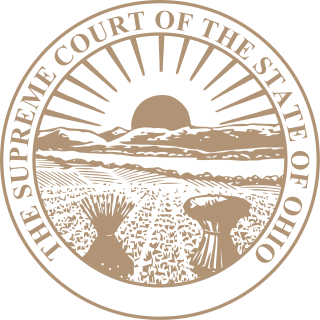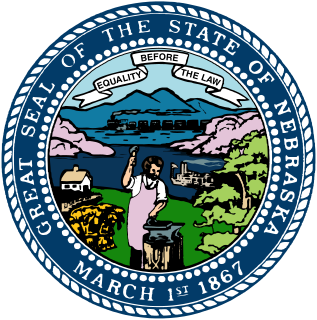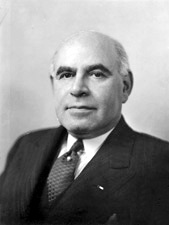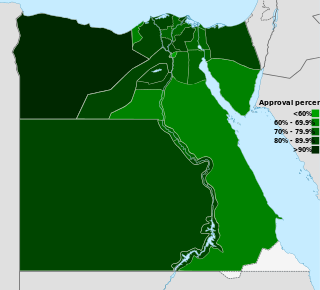
The politics of Kazakhstan takes place in the framework of a presidential republic, whereby the President of Kazakhstan is head of state and nominates the head of government. Executive power is exercised by the government. Legislative power is vested in both the government and the two chambers of parliament.

The President of the Republic of Turkey is the head of state and head of government of the Republic of Turkey. Following the 2018 general election, the incumbent office-holder assumed the role of an Executive President and holds both ceremonial and executive status. In this capacity, the President represents the Republic of Turkey, and the unity of the Turkish nation, as well as ensuring the implementation of the Constitution of Turkey and the organized and harmonious functioning of the organs of state. The articles from 101 to 106 of the Constitution establish all the requirements, election, duties, and responsibilities for the office of the President. The office of the President of Turkey was established with the proclamation of the Republic of Turkey on 29 October 1923. The President of Turkey is often referred to as the Cumhurbaşkanı, meaning 'President of the People'.

The Supreme Court of Ohio is the highest court in the U.S. state of Ohio, with final authority over interpretations of Ohio law and the Ohio Constitution. The court has seven members, a chief justice and six associate justices, each serving six-year terms. Since 2004, the court has met in the Thomas J. Moyer Ohio Judicial Center on the east bank of the Scioto River in downtown Columbus. Prior to 2004, the court met in the James A. Rhodes State Office Tower and earlier in the Judiciary Annex of the Ohio Statehouse.

The Supreme Court of Florida is the highest court in the U.S. state of Florida. It consists of seven members—the Chief Justice and six Justices. Five members are chosen from five districts around the state to foster geographic diversity and two are selected at-large.

The Supreme Court of Texas ("SCOTX") is the court of last resort for civil appeals in the U.S. state of Texas. A different court, the Texas Court of Criminal Appeals, is the court of last resort for criminal matters.

The Wisconsin Supreme Court is the highest appellate court in Wisconsin. The Supreme Court has jurisdiction over original actions, appeals from lower courts, and regulation or administration of the practice of law in Wisconsin.

The Arizona Supreme Court is the state supreme court of the U.S. state of Arizona. It consists of a chief justice, a vice chief justice, and five associate justices. Each justice is appointed by the governor of Arizona from a list recommended by a bipartisan commission. Justices stand for retention in an election two years after their appointment and then every six years. They must retire at age 70.

The Arkansas Supreme Court is the highest court in the U.S. state of Arkansas. Since 1925, it has consisted of a Chief Justice and six Associate Justices, and at times Special Justices are called upon in the absence of a regular justice. The Justices are elected in a non-partisan election for eight-year-long terms that are staggered to make it unlikely that the entire court would be replaced in a single election. Any vacancy caused by a Justice not finishing his or her term is filled by an appointment made by the Governor of Arkansas.

The Nebraska Supreme Court is the highest court in the U.S. state of Nebraska. The court consists of a chief justice and six associate justices. Each justice is initially appointed by the governor of Nebraska; using the Missouri Plan, each justice is then subject to a retention vote for additional six-year terms. The six justices each represent a Supreme Court district; the chief justice is appointed at-large.

The Montana Supreme Court is the highest court of the Montana state court system in the U.S. state of Montana. It is established and its powers defined by Article VII of the 1972 Montana Constitution. It is primarily an appellate court which reviews civil and criminal decisions of Montana's trial courts of general jurisdiction and certain specialized legislative courts, only having original jurisdiction in a limited number of actions. The court's Chief Justice and six Associate Justices are elected by non-partisan, popular elections. The Montana Supreme Court meets in the Joseph P. Mazurek Building in Helena, Montana, the state's capital, an international style building completed in 1982 and named in the honor of former Montana Attorney General, Joseph P. Mazurek.

The New Mexico Supreme Court is the highest court in the U.S. state of New Mexico. It is established and its powers defined by Article VI of the New Mexico Constitution. It is primarily an appellate court which reviews civil and criminal decisions of New Mexico's trial courts of general jurisdiction and certain specialized legislative courts, only having original jurisdiction in a limited number of actions. The New Mexico Supreme Court meets in Santa Fe, the state capital.
The federal government of Iraq is defined under the current Constitution, approved in 2005, as an Islamic, democratic, federal parliamentary republic. The federal government is composed of the executive, legislative, and judicial branches, as well as numerous independent commissions.
Marilyn Jean Kelly is a retired jurist in Michigan. She was elected to two terms both on the Michigan Court of Appeals and as a Justice of the Michigan Supreme Court. Due to her being over 70 years old, Kelly was prohibited by the Michigan Constitution to seek re-election in 2012.

The 1934 New York state election was held on November 6, 1934, to elect the Governor, the Lieutenant Governor, the State Comptroller, the Attorney General, a U.S. Senator, two U.S. Representatives-at-large, the Chief Judge and two associate judges of the New York Court of Appeals, as well as all members of the New York State Assembly and the New York State Senate.

The Supreme Court of Mississippi is the highest court in the state of Mississippi. It was created in the first constitution of the state following its admission as a State of the Union in 1817. Initially it was known as the "High Court of Errors and Appeals." The court is an appellate court, as opposed to a trial court. The Court Building is located in downtown Jackson, Mississippi, the state capital.

The Constitution of Liberia is the supreme law of the Republic of Liberia. The current constitution, which came into force on 6 January 1986, replaced the Liberian Constitution of 1847, which had been in force since the independence of Liberia. Much like the 1847 Constitution, the Constitution creates a system of government heavily modeled on the Federal Government of the United States.
Romeo Vásquez Velásquez is a Honduran politician and retired brigadier general. He was the head of the military of Honduras from January 11, 2005 to January 25, 2010.

A referendum to amend the Constitution of Liberia was held on 23 August 2011. Voters chose whether to ratify four amendments regarding judge tenure, elections scheduling, presidential candidate requirements and the electoral system. The National Elections Commission of Liberia (NEC) oversaw the referendum.

A constitutional referendum was held in Egypt on 19 March 2011, following the 2011 Egyptian revolution. More than 14 million (77%) were in favour, while around 4 million (23%) opposed the changes; 41% of 45 million eligible voters turned out to vote.

A referendum on the archive law was held in Slovenia on 8 June 2014. Voters were asked whether they were in favor of the amendments to the law that were passed in January 2014. The amendments were rejected by 67% of voters, although the referendum was invalidated by "no" voters accounting for only 7.79% of all registered voters, well below the 20% quorum.


















